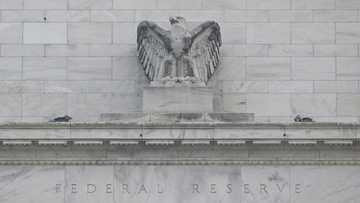Swedish inflation dips, Beyonce blamed for high prices

Source: AFP
PAY ATTENTION: Enjoy reading our stories? Join YEN.com.gh's Telegram channel for more!
Swedish inflation dipped under 10 percent in May, official statistics showed Wednesday, but was still higher than expected with some analysts suggesting superstar Beyonce had tipped the scales.
Consumer prices rose by 9.7 percent in May year-on-year, down from 10.5 percent in April, the first time inflation came in under 10 percent in over six months.
"Continued decrease in electricity and food prices contributed to the lower inflation rate in May," Mikael Nordin, statistician at Statistics Sweden, said in a statement.
At the same time, costs of certain goods and services rose, "for instance hotel and restaurant visits, recreational services, and clothing," the agency said.
According to Michael Grahn, chief economist for Sweden at Danske Bank, a visit by Beyonce to Stockholm could explain the unexpected rise.
"Beyonce's start of her world tour in Sweden seems to have coloured May inflation, how much is uncertain," Grahn said in a post to social media.
PAY ATTENTION: Сheck out news that is picked exactly for YOU ➡️ click on “Recommended for you” and enjoy!
Grahn added that her much-hyped concert in May "probably" accounted for 0.2 of the 0.3 percentage points added to inflation by hotels and restaurant prices.
Tens of thousands of fans flocked to Stockholm in the middle of May to catch the two concerts that kicked off her first solo tour in seven years.
Inflation peaked in December at 12.3 percent -- a more than 30-year high -- then slowed slightly in January to 11.7 percent, but unexpectedly spiked back to 12 percent in February.
Like its peers in the United States and Europe, Sweden's central bank has repeatedly hiked its guiding rate in an effort to rein in inflation.
The Riksbank raised the rate to 3.5 percent in late April and said it would "probably" raise it by another quarter-point in June or September.
Inflation adjusted for fixed interest rates (CPIF) -- the figure used by the Riksbank to guide monetary policy -- was 6.7 percent in May, compared to 7.6 percent in April.
For 2023 as a whole, the central bank expects the Swedish economy to contract 0.7 percent, and has forecast unadjusted inflation of 8.9 percent and rising unemployment.
New feature: Сheck out news that is picked for YOU ➡️ click on “Recommended for you” and enjoy!
Source: AFP



